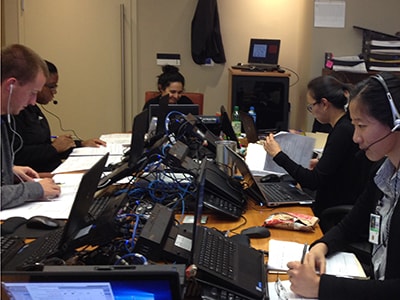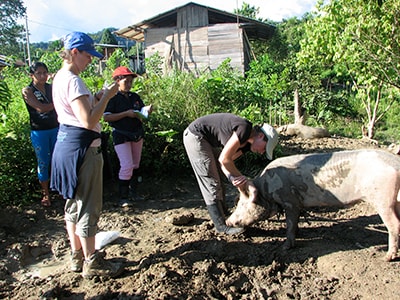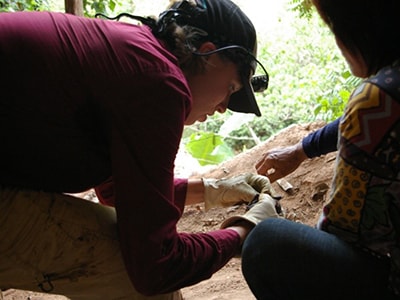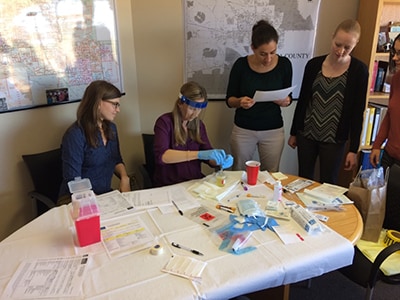Error processing SSI file


Review Participation Information
PAGE 3 of 6
‹View Table of Contents
The application period for EEP 2024 rotation is open now through March 31, 2023.
Review the participation information on this page to adequately plan for rotations before applying.
Participation Expectations
Selected EEP students:
- Must be available during one of the set rotation dates and complete their assigned rotation in its entirety. Students are allowed two days of excused absence with program approval. Prepare to select among the pre-determined rotation dates and make the appropriate arrangements prior to submitting your application.
- Are notified of program acceptance and placement via email by the specified notification date. Matched students must accept the placement and complete necessary paperwork by the date provided in the acceptance notification.
- Are placed at CDC, other federal sites, and in state, tribal, local, and territorial health departments and assigned a host site supervisor. Examples of sites that have hosted students are listed on the FAQs web page. The EEP program uses an algorithm to best place students with sites based on topics of interest, project types, rotation dates, and location preferences provided in their application.
- Must comply with the CDC onboarding procedures by submitting paperwork on time and as instructed, completing tasks (i.e., fingerprinting) by the due dates, and communicating important updates to the program by the dates provided.
- Must attend the mandatory in-person orientation at CDC headquarters in Atlanta, Georgia during the first three days of the rotation.
- Students assigned to a site outside of Atlanta, Georgia will be traveled in at EEP program’s expense. Please note that this is not a travel stipend and travel must be arranged through EEP.
- Students assigned to a CDC site in Atlanta are responsible for transportation to orientation in Atlanta as part of their travel and housing for their rotation.
- Are offered a range of in-person and virtual trainings throughout their rotation, such as a CDC Library orientation, a clear writing classes, an effective presentations training, and connecting/networking events.
- Do not receive a salary, stipend, or benefits and are responsible for living expenses and round-trip transportation to their assigned location. If students are asked to participate in an official Epi-Aid or Technical Assistance through EEP during the rotation, CDC will fund any Epi-Aid-related or Technical Assistance-related travel. If a student is asked to participate in other official response activities, conferences, or meetings that require travel, the host site may elect to fund travel.
- Are expected to work during federal business hours, unless otherwise specified by your EEP supervisor. Federal business hours are Monday through Friday from 8:00 a.m.–4:30 p.m. (ET).
- May apply more than once if not selected.
- May only participate in EEP once (for one rotation).
- May not participate in any other elective rotation during the dates of their assigned EEP rotation.
Participation Benefits
Past EEP students have found the following to be benefits of participating in EEP:
- Training, mentorship & networking. EEP students are provided a list of CDC seminars and trainings (with online attendance options) and given opportunities to learn about CDC fellowship, training and employment opportunities and network with current Epidemic Intelligence Service (EIS) officers and Preventive Medicine Residency and Fellowship (PMR/F)
- Participation in engaging projects in diverse topic areas. During the 6- or 8- week rotations, EEP students apply their clinical knowledge and skills to public health projects. In the past, students have worked on projects such as collecting and analyzing health data, assisting with outbreak investigations, drafting reports, and more.
- Academic school credit for participating in EEP. It is the students’ responsibility to coordinate academic school credit with their school. EEP staff are willing to provide necessary documentation and complete any evaluations, as needed.
- Dual degree candidates (e.g. MD/MPH or, DVM/MPH) can complete their EEP rotation as MPH practicum if they have completed 2 years of medical or veterinary school curriculum by July 1 of the application year and meet all other eligibility criteria.
- Opportunities for EEP graduates to apply for monetary awards. Some EEP graduates may be eligible to apply for stipend awards that cover travel to the annual Epidemic Intelligence Service conference to learn and network with CDC disease detectives. Learn more about the CDC-Hubert Global Health Award and the Pappaioanou Veterinary Public Health and Applied Epidemiology Award on the awards web page.
Steps to Apply to the Epidemiology Elective Program
Error processing SSI file



